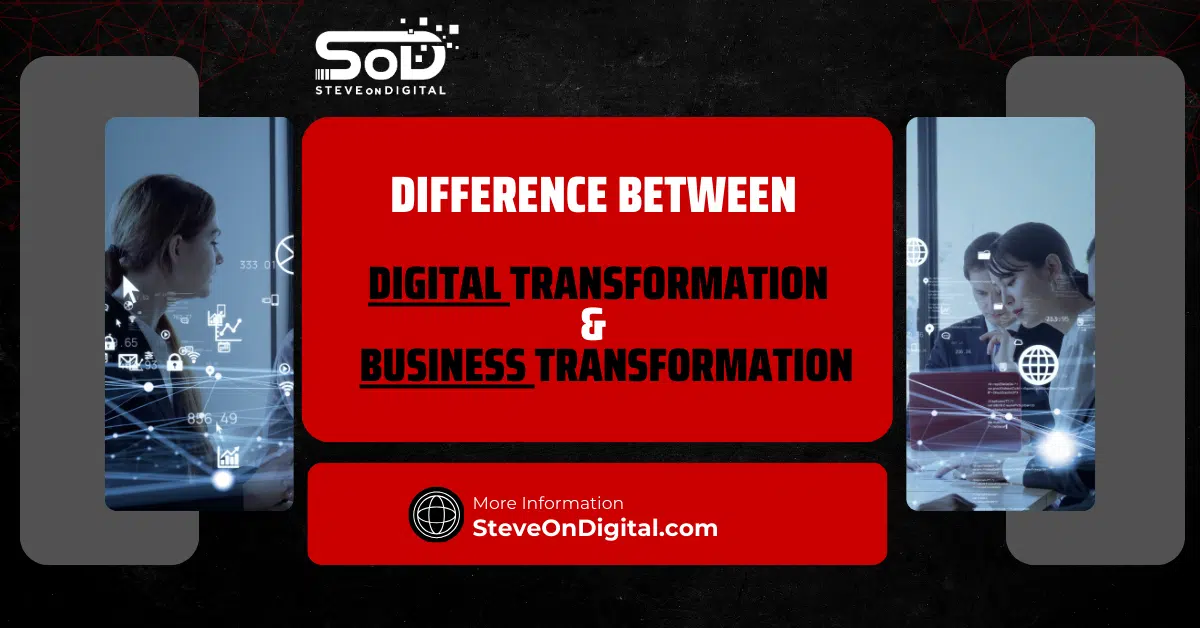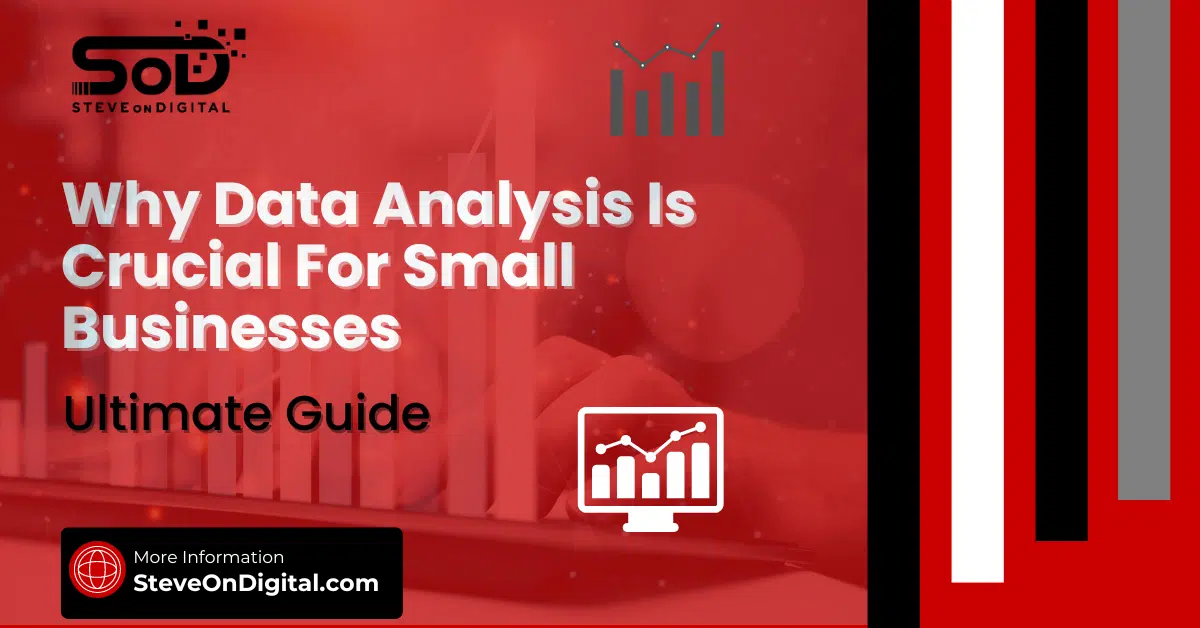Fintech, short for financial technology, is the use of digital tools to improve financial services for small businesses. It simplifies tasks like accounting, payments, and securing loans, making these processes faster, easier, and more accessible. Fintech helps small business owners overcome traditional financial challenges, offering innovative solutions that were once only available to larger companies.
In my experience, fintech has been a game-changer, enabling me to manage my business finances more efficiently. This article explores how fintech can transform small businesses, offering practical insights and examples to help you make the most of these technologies.
I’m Steve, a digital transformation expert with a strong background in electrical engineering, an MBA, and a master’s in Project Management. I excel at helping SMEs navigate the digital landscape with practical insights. Let’s begin!
Understanding Fintech
To grasp the impact of fintech on small businesses, it’s essential to understand what fintech actually is and how it has evolved over time.
What Is Fintech?
Fintech is a term that merges “financial” and “technology,” and it represents the use of technology to improve financial services. In simple terms, it’s all about using digital tools to deliver financial services more efficiently. Whether it’s through mobile payment apps, online lending platforms, or cloud-based accounting software, fintech is designed to make financial processes faster, easier, and more accessible.
Evolution of Fintech
The journey of fintech began decades ago, but it has gained momentum in the last 20 years. Initially, fintech was about back-end systems used by financial institutions. However, the focus has shifted dramatically with the rise of the internet and mobile technology. Now, fintech innovations like digital payments and peer-to-peer lending are at the forefront, revolutionizing how small businesses operate.
Importance of Fintech for Small Businesses
Fintech is vital for small businesses because it levels the playing field. Traditionally, financial services were dominated by big banks with stringent requirements, making it difficult for small businesses to access essential financial resources. Fintech changes this by offering solutions that are tailored to the needs of small businesses, allowing them to manage finances, secure funding, and plan for the future with greater ease and efficiency.
Fintech Solutions for Small Businesses
There are a variety of fintech solutions that can help small businesses thrive. Here are some of the key areas where fintech can make a difference.
Digital Payments
One of the most significant impacts of fintech on small businesses is in the realm of digital payments. Gone are the days when handling cash was the norm. With digital payments, I can process transactions quickly and securely, whether online or in-person. This not only improves cash flow but also enhances customer satisfaction by offering multiple payment options. According to a recent study, businesses that accept digital payments have seen a 15% increase in sales compared to those that rely solely on cash.
Online Lending Platforms
Accessing capital has always been a challenge for small businesses, especially those with limited credit histories. Online lending platforms have changed the game by providing alternative funding sources that are quicker and more accessible than traditional banks. Personally, I found that these platforms offer more flexible terms, allowing me to secure the funds I needed to grow my business without the red tape that comes with bank loans.
Accounting Software
Managing finances manually is not only time-consuming but also prone to errors. That’s where accounting software comes in. Fintech innovations in accounting software allow small business owners like myself to streamline accounting processes, from tracking expenses to generating financial reports. This not only saves time but also provides real-time financial tracking, which is crucial for making informed business decisions.
Mobile Payment Apps
In today’s fast-paced world, mobile payment apps have become indispensable. These apps allow me to accept payments on the go, making it easier to do business anywhere, anytime. The convenience of mobile payments has also contributed to a better customer experience, as clients appreciate the flexibility of paying with their smartphones.
Peer-to-Peer Lending
Peer-to-peer lending platforms provide a direct link between small businesses and investors, offering an alternative to traditional lending services. This method of funding has become increasingly popular due to its speed and ease of access. For small businesses that might struggle to meet the stringent requirements of traditional banks, peer-to-peer lending provides a viable solution.
Benefits of Adopting Fintech in Small Businesses
Adopting fintech solutions can significantly benefit small businesses. Here are some key advantages that I’ve experienced firsthand.
Improved Financial Management
Fintech tools offer enhanced financial management capabilities, allowing me to keep track of every dollar coming in and going out. With advanced algorithms and data analytics, I can analyze financial trends and make better decisions to improve my business’s financial health.
Access to Financial Services
Fintech firms have democratized access to financial services, particularly for small businesses. Whether it’s through online banking, mobile payment apps, or lending platforms, fintech makes it easier for small businesses to access the financial resources they need to grow and thrive.
Enhanced Financial Inclusion
One of the most significant advantages of fintech is its ability to foster financial inclusion. For small businesses with limited credit histories, fintech provides access to services that were previously out of reach. This is particularly important for businesses in underserved markets, where traditional financial institutions might be reluctant to lend.
Key Fintech Innovations for Small Businesses
In the ever-evolving landscape of business, keeping up with the latest innovations is crucial. For small businesses, fintech innovations have been nothing short of a game-changer, helping to level the playing field with larger competitors. Let’s dive into some of the key fintech innovations that have the potential to revolutionize how you manage your business.
Artificial Intelligence in Fintech
Artificial intelligence (AI) is no longer a futuristic concept—it’s here, and it’s transforming how small businesses operate, especially in financial services. AI-powered tools can automate financial processes, reducing the time and effort required for tasks like invoicing and payroll. For example, AI-driven chatbots can handle customer inquiries, offering real-time financial advice or resolving issues without human intervention.
Moreover, AI helps small businesses make smarter decisions by analyzing vast amounts of data in seconds. This capability is especially beneficial for financial planning, where AI can identify trends and provide insights that would take a human analyst much longer to uncover. By leveraging AI, small businesses can optimize their financial management, making more informed decisions that drive growth and efficiency.
Machine Learning for Financial Analysis
Machine learning, a subset of AI, takes things a step further by continuously learning from data to improve its predictions and decisions. In the context of financial analysis, machine learning can process complex datasets to identify patterns that might not be obvious at first glance. For small businesses, this means having the ability to forecast cash flow more accurately, assess credit risks better, and even predict market trends.
One of the biggest advantages of machine learning is its ability to adapt over time. As your business grows and your data sets expand, the machine learning algorithms will become more precise, offering increasingly valuable insights. This is a powerful tool for any small business looking to gain a competitive edge in a crowded marketplace.
Cloud Services for Business Processes
Cloud services have revolutionized how businesses manage their operations, and small businesses stand to gain significantly from this technology. By moving processes to the cloud, you can streamline your operations, improve collaboration, and reduce costs. For instance, cloud-based accounting software allows you to manage your finances from anywhere, at any time, without the need for expensive on-site hardware.
The flexibility offered by cloud services is invaluable. You can scale your services up or down based on your needs, making it a cost-effective solution for growing businesses. Additionally, cloud services ensure that your data is backed up and secure, reducing the risk of data loss and giving you peace of mind.
Challenges of Implementing Fintech for Small Businesses
While fintech offers numerous benefits, adopting these technologies isn’t without its challenges. It’s essential to understand these hurdles to navigate them effectively and fully realize the potential of fintech in your business.
Data Breaches and Security Concerns
One of the most significant concerns with adopting fintech solutions is data security. As small businesses increasingly rely on digital platforms to manage financial processes, they become prime targets for cyberattacks. Data breaches can lead to the loss of sensitive information, financial loss, and damage to your business’s reputation.
To mitigate these risks, it’s crucial to implement strong security measures. This includes using encrypted connections, regularly updating software, and educating employees about cybersecurity best practices. By taking these steps, you can protect your business from potential threats while enjoying the benefits that fintech offers.
Integration with Existing Systems
Integrating new fintech solutions with your existing systems can be a daunting task. Many small businesses operate on legacy systems that may not be compatible with the latest fintech tools. This can lead to disruptions in business processes and require significant investment in time and resources to resolve.
The key to overcoming this challenge is careful planning. Before adopting a new fintech solution, assess your current systems to identify potential compatibility issues. You may need to upgrade your existing infrastructure or choose fintech solutions that offer seamless integration with the tools you already use.
Identifying Potential Risks
Implementing fintech solutions comes with its own set of risks, from financial to operational. It’s essential to identify and assess these risks before fully integrating fintech into your business. This includes understanding the financial implications, such as the cost of implementation and potential return on investment, as well as operational risks, like disruptions during the transition period.
To manage these risks effectively, I recommend conducting a thorough risk assessment and developing a mitigation plan. This will help you anticipate potential issues and prepare for them, ensuring a smoother adoption process.
The Role of Financial Institutions in Fintech
Traditional financial institutions have been both partners and competitors in the fintech revolution. Their role in this evolving landscape is critical, particularly for small businesses that rely on their services.
Collaboration with Fintech Firms
Many financial institutions have recognized the potential of fintech and have started collaborating with fintech firms to enhance their service offerings. These partnerships often result in better services for small businesses, such as faster loan approvals or more robust online banking platforms. By leveraging the strengths of both traditional banks and fintech companies, small businesses can access a wider range of financial resources tailored to their needs.
Fintech’s Impact on Credit Unions
Credit unions have traditionally served small businesses by offering favorable loan terms and personalized service. However, fintech has challenged credit unions to innovate and adapt. Many credit unions are now integrating fintech solutions to improve their offerings, such as providing more efficient online banking services or using AI to assess loan applications more accurately.
For small businesses, this means access to better financial services while still enjoying the benefits of working with a credit union, such as lower fees and a more community-oriented approach.
Role in Financial Inclusion
One of the most significant contributions of fintech is its role in promoting financial inclusion. Traditional financial institutions have often been inaccessible to small businesses, particularly those with limited credit histories or in underserved areas. Fintech has bridged this gap by providing alternative funding sources, such as peer-to-peer lending and online lending platforms.
These innovations have made it easier for small businesses to access the capital they need to grow, regardless of their location or credit history. By partnering with fintech firms, traditional financial institutions can further enhance financial inclusion, ensuring that more small businesses can thrive.
The Future of Fintech for Small Businesses
Looking ahead, the future of fintech for small businesses is bright. As technology continues to evolve, new opportunities and challenges will emerge, shaping how small businesses operate in the coming years.
Emerging Technologies
Emerging technologies such as blockchain, AI, and machine learning are set to play an even more significant role in fintech. These technologies have the potential to further streamline financial processes, reduce costs, and provide small businesses with even more powerful tools to manage their finances.
For example, blockchain technology could revolutionize payment processing by offering more secure and transparent transactions. AI and machine learning will continue to enhance financial analysis, providing small businesses with deeper insights and more accurate forecasts.
The Growth of Digital Platforms
Digital platforms have already transformed how small businesses operate, and their influence will only grow in the future. As more businesses move online, digital platforms will become the primary way to access financial services, from online banking to lending and beyond.
This shift will require small businesses to adapt by investing in digital tools and platforms that enhance their operations. The businesses that can successfully navigate this transition will be better positioned to compete in an increasingly digital marketplace.
Future Challenges and Opportunities
While the future of fintech offers many opportunities, it also presents challenges that small businesses must be prepared to face. These include staying up-to-date with rapidly changing technologies, managing cybersecurity risks, and navigating an increasingly complex regulatory landscape.
However, by staying informed and proactive, small businesses can turn these challenges into opportunities. By adopting the latest fintech innovations and leveraging the power of digital platforms, small businesses can continue to grow and thrive in the years to come.
How to Choose the Right Fintech Solutions
Selecting the right fintech solutions can feel like navigating a maze. With so many options out there, it’s easy to get overwhelmed. When I first started exploring fintech for my own business, I quickly realized the importance of a strategic approach. Here’s what I’ve learned about choosing the right fintech solutions for small businesses like ours.
Assessing Business Needs
Before diving into the sea of fintech options, it’s crucial to take a step back and evaluate your business needs. Start by asking yourself what problems you need to solve. Is it streamlining your accounting processes? Do you need faster access to capital? Understanding your specific pain points will guide you toward solutions that address them directly.
For instance, if cash flow management is a challenge, look for fintech tools that offer real-time financial tracking. If you’re struggling with customer payments, consider mobile payment apps that make transactions seamless. By pinpointing your needs, you can focus on solutions that add the most value to your business.
Comparing Fintech Providers
Once you’ve identified your needs, the next step is comparing different fintech providers. Not all solutions are created equal, and it’s important to weigh the pros and cons of each option. When I compare providers, I look at factors like pricing, ease of use, customer support, and integration capabilities.
A critical aspect to consider is the provider’s track record with businesses similar to yours. Look for reviews and case studies that show how other small businesses have benefited from the solution. Additionally, evaluate the scalability of the solution—will it grow with your business, or will you outgrow it in a year or two?
Integration Considerations
Integration is often an overlooked aspect when choosing fintech solutions, but it’s vital for ensuring a smooth transition. Many small businesses, including mine, operate on a mix of old and new systems. The last thing you want is a fintech solution that doesn’t play well with your existing tools.
When evaluating a solution, ask about its compatibility with the software you currently use. Will it require significant changes to your processes, or can it be easily integrated with minimal disruption? The easier the integration, the quicker you’ll see the benefits without unnecessary downtime.
Case Studies of Fintech in Small Businesses
Learning from others who have successfully implemented fintech can provide valuable insights. Here are a few case studies that illustrate how fintech has made a difference for small businesses.
Success Stories
One success story that stands out is a local retail store that adopted mobile payment apps to improve customer experience. Before the switch, they faced issues with slow payment processing and limited payment options. After implementing a mobile payment solution, they saw a 20% increase in sales within the first three months, thanks to faster transactions and happier customers.
Another example is a small manufacturing business that used online lending platforms to access capital. Traditional banks had rejected their loan applications due to limited credit history. However, a fintech lender offered them the funds they needed, allowing them to expand their operations and increase production by 30%.
Lessons Learned
From my experience and observations, one key takeaway is the importance of starting small. Don’t try to implement multiple fintech solutions at once. Start with one or two that address your most pressing needs, and expand as you become more comfortable with the technology.
Another lesson is the value of training. Ensure that your team is adequately trained on any new fintech tools you adopt. This reduces the learning curve and increases the likelihood of successful implementation.
Industry-Specific Case Studies
Fintech’s impact varies across industries, and understanding these differences can help tailor solutions to your specific sector. For example, a small restaurant might benefit most from mobile payment apps and digital platforms that streamline online orders. Meanwhile, a construction business might find value in real-time financial tracking and peer-to-peer lending for financing large projects.
Regulatory Considerations for Fintech Adoption
Adopting fintech isn’t just about finding the right tools—it also involves navigating the regulatory landscape. Small businesses must ensure compliance with financial regulations and data privacy laws to avoid potential pitfalls.
Compliance with Financial Regulations
Compliance is a critical aspect of fintech adoption. Each country has its own set of financial regulations that govern how fintech companies operate. As a small business, it’s essential to ensure that any fintech solution you adopt complies with these regulations.
For example, fintech firms that offer lending services are subject to regulations that protect consumers. Before using such a service, verify that the provider adheres to these rules to avoid legal issues down the line. This due diligence can save you from headaches and potential fines.
Understanding Data Privacy Laws
Data privacy is another significant concern when adopting fintech solutions. With the increasing digitization of financial services, protecting customer data has never been more important. Different regions have varying data privacy laws, such as GDPR in Europe or CCPA in California.
When selecting a fintech provider, inquire about their data protection measures. Ensure they use encryption and other security protocols to safeguard sensitive information. This not only protects your business but also builds trust with your customers.
Navigating Regulatory Changes
The fintech sector is dynamic, with regulations continually evolving to keep pace with technological advancements. Staying informed about these changes is crucial for small businesses that rely on fintech solutions.
Regularly review industry updates and participate in relevant webinars or training sessions. This proactive approach ensures that your business remains compliant as new regulations come into effect. It also positions you to quickly adapt to changes, minimizing disruption to your operations.
Final Thoughts
Fintech has undeniably transformed the landscape for small businesses. The right fintech solutions can streamline operations, improve financial management, and open up new avenues for growth. However, it’s essential to approach fintech adoption strategically, starting with a clear understanding of your business needs and the regulatory environment.
By carefully selecting fintech tools that align with your goals, you can unlock new efficiencies and drive your business forward. Whether you’re just starting with fintech or looking to expand your use of these technologies, the key is to stay informed and adaptable. The fintech landscape will continue to evolve, and with it, so will the opportunities for small businesses willing to embrace change.




